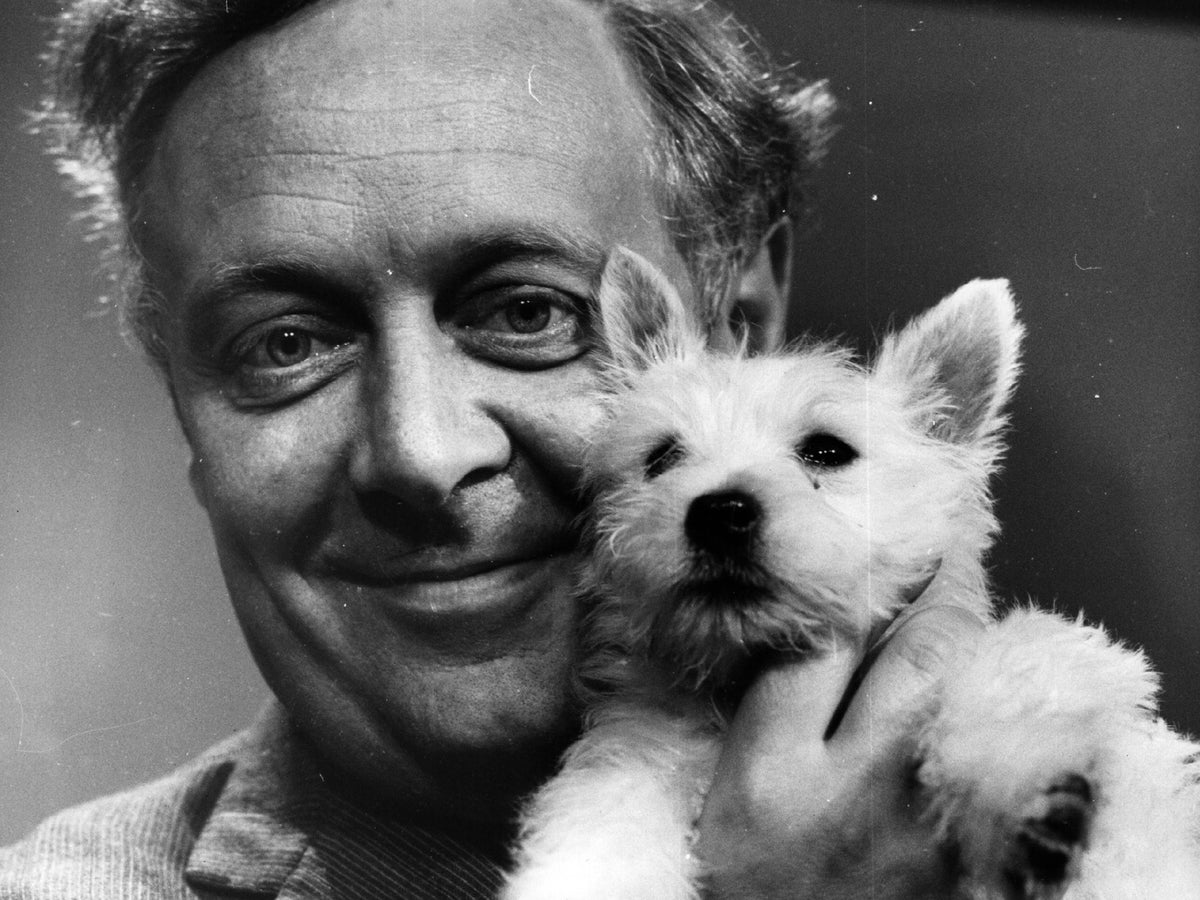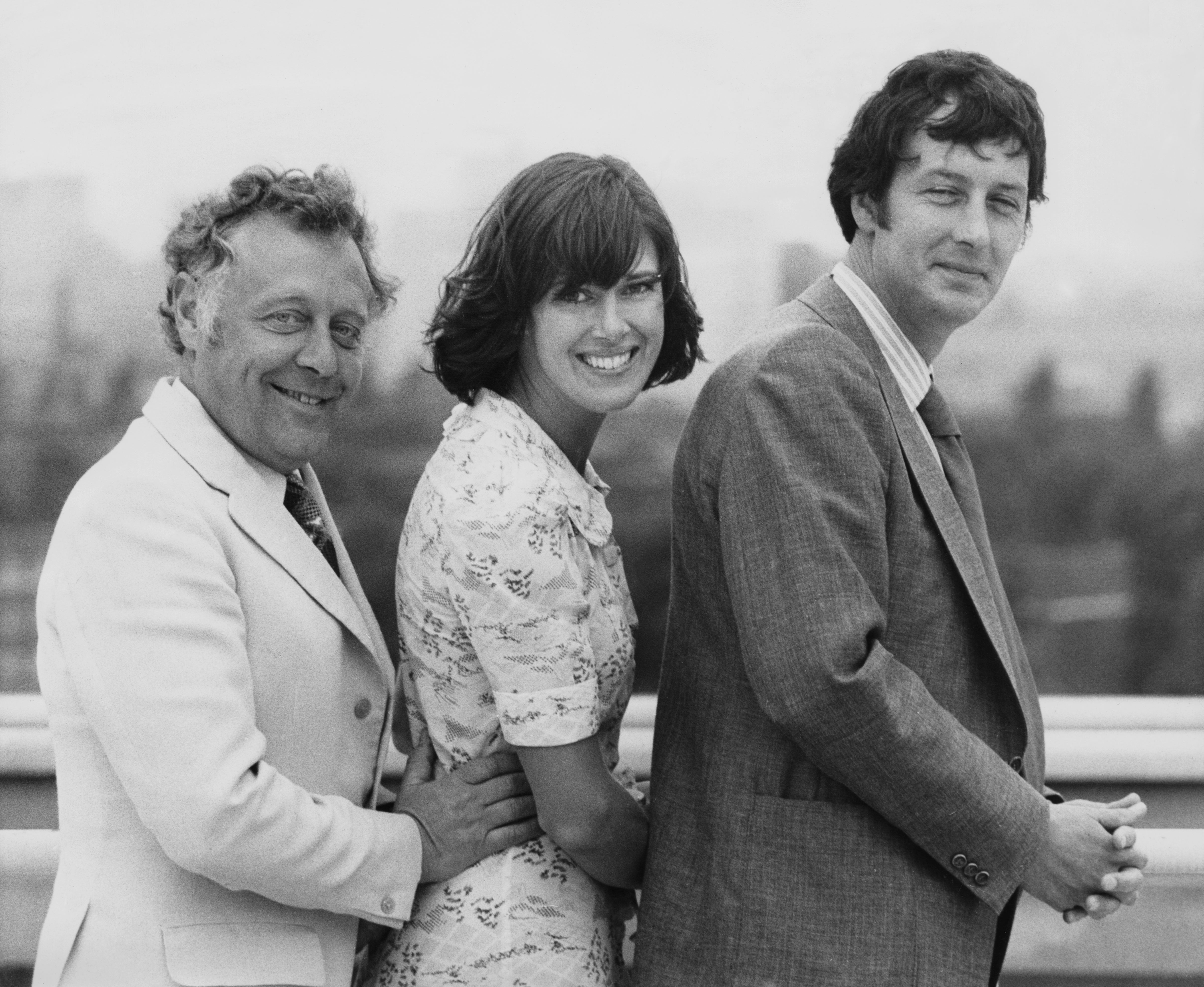
Once famously described as Britain’s answer to the legendary American television anchor man Walter Cronkite, Michael Barratt, who has died aged 94, found fame during the 1970s as the much-loved presenter of BBC Television’s groundbreaking early evening daily magazine show, Nationwide.
Regularly attracting a viewing audience in excess of 11 million, this unashamedly populist programme mixed serious social and political issues with more humorous items such as inebriated snails and skateboarding ducks.
With his easy-going charm, Barratt effortlessly navigated his way through the regular technical glitches in what was then groundbreaking technology. But as many politicians found to their cost, such an avuncular manner also masked a most incisive mind.
Born in Leeds, the son of a tax inspector, Michael Fieldhouse Barratt spent his formative years on the Fylde coast, becoming a boarder at Rossall School. When his widowed father subsequently remarried and moved to Scotland, the younger Barratt transferred to Paisley Grammar School. Seemingly destined for an academic future at St Andrew’s University, instead in 1944, aged 16, and much to his father’s disappointment, he left education to begin his journalistic career.
Joining Kemsley Newspapers, he began as a teaboy earning 30 shillings a week. Two years later, having been declared unfit for national service, he had graduated to become chief sub-editor at the Daily Record. He was then appointed sports editor of the Loughborough Monitor.
In 1956, a newly married Barratt travelled to Africa, where he served as assistant editor of the Nigerian Citizen newspaper. Based in the north just as the civil war was beginning, he also undertook assignments for the Nigerian Broadcasting Service.
Back in this country, he returned to the Midlands to become sub-editor of the Wolverhampton Express and Star. At the same time, he began commentating on African matters for the BBC World Service at Bush House. He also worked as a current affairs reporter for the BBC TV programme Midlands Today. His big broadcasting breakthrough came at the height of the Profumo scandal in the early 1960s. A brief live report on the effects of the scandal on Conservative voters in the region for the BBC’s flagship current affairs programme Panorama quickly earned him an invitation to join its permanent staff.
Closely mentored by Panorama’s respected presenter Richard Dimbleby, Barratt was soon a world traveller, filing reports on everything from apartheid in South Africa to Eoka terrorism in Cyprus. His film about the Nobel Prize-winning polymath Albert Schweitzer and the leper colony he founded at Lambaréné in Gabon was highly lauded.
At home he proved no less diligent in pursuing the notorious slum landlord Peter Rachman, or exploring the criminal activities of the Kray twins. Taking his leave of Panorama in 1965, he joined the team on a new late evening programme called 24 Hours. Hosted by Cliff Michelmore, it was designed as a replacement for the long-running Tonight programme. Barratt would occasionally act as its host.

First broadcast on BBC One three times a week in black and white from the old Lime Grove studios in September 1969, Nationwide was the creation of BBC News producer Derrick Amoore. He set out to publicise local activities and interests by bringing them to a national audience. However, it would be three years before the programme was able to utilise colour and appear each weekday evening.
Seamlessly following the nightly local news bulletins, 11 regional studios would go live simultaneously. Though often derided by the critics, with Barratt as the genial host adroitly nursing it through its growing pains, Nationwide quickly built up and kept a large and loyal following. Developing a particular interest in consumer affairs, it became the first home of Watchdog, later to become a long-running standalone programme in its own right.
As well as presenting, Barratt also exercised an unusually large degree of editorial control over its content. By now aged 40, he found himself very much the venerable elder statesman of what became a predominantly young team. Nicknamed “Mr Grumpy”, he was nevertheless always a generous supporter of his colleagues. Among those soon to become household names were Sue Lawley, Richard Stilgoe, John Stapleton and Sue Cook. No less impressive were those behind the camera: Helen Fielding, creator of Bridget Jones, Bernard Wiggins, Bernard Cornwell and a whole generation of future television executives.
After 1,000 editions of the show, Barratt took his leave in 1977, courtesy of a valedictory train journey around the entire United Kingdom. Using a carriage as a mobile studio, on each evening’s edition of the show he would be greeted at every stop by enthusiastic crowds.
By then he had begun a relationship with a fellow Nationwide presenter, Dilys Morgan, some 20 years his junior. BBC regulations at the time forbade a husband and wife from co-presenting the same programme. Barratt went on to present the BBC’s Songs of Praise, while also serving as chair of Radio 4’s Gardeners’ Question Time.
A keen golfer and cricket enthusiast, never averse to helping raise money for charity with the Lord’s Taverners, in 1973 he was elected Rector of Aberdeen University. In later years, content to send himself up, he would play opposite Tim Brooke-Taylor, Graeme Garden and Bill Oddie in a number of editions of the hit BBC show The Goodies.
In 2012, he published an entertaining memoir of his career entitled Mr Nationwide. Further books followed on gardening, golf and how best to enjoy retirement. Interviewed in 1974, just before he went on air in Cardiff for an edition of Gardeners’ Question Time, he was asked what kind of epitaph he would like. He thought for a moment and replied: “’Here lies a reporter’; that would suit me down to the ground.”
Marrying Joan Warner in 1952, the couple had six children, three sons and three daughters. A son and daughter predeceased him. With his second wife, Dilys, he had two sons and a daughter.
Michael Barratt, journalist and broadcaster, born 3 January 1928, died 10 July 2022







